I’ve read a lot of books in the last couple of years. These books helped me to understand more about the Christian church in general. I’ve included the Amazon blurb for each, as well as a link to the Amazon listing for the book.
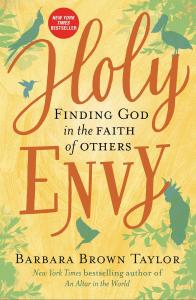
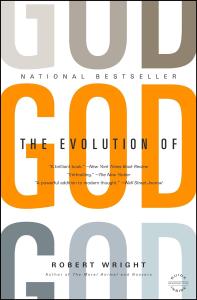
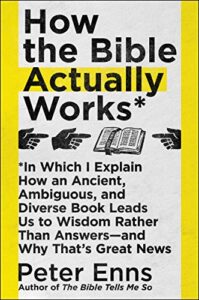
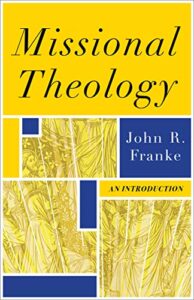
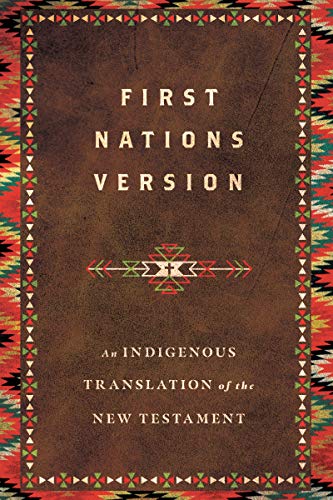
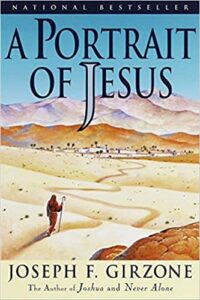
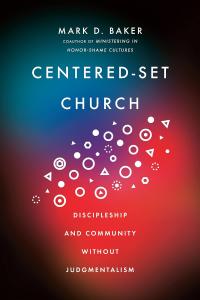
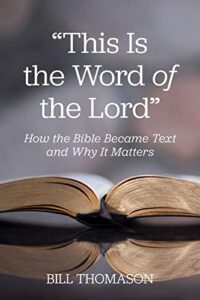
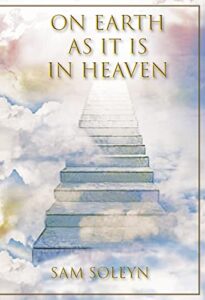
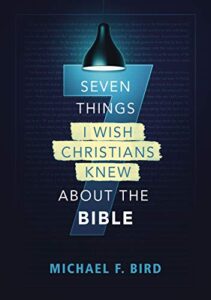
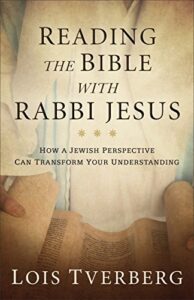
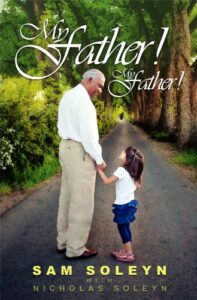
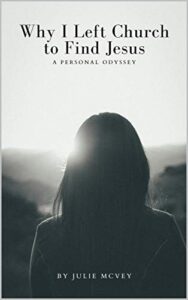
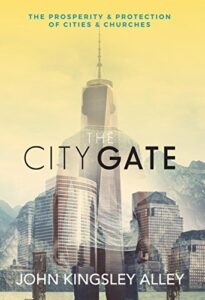
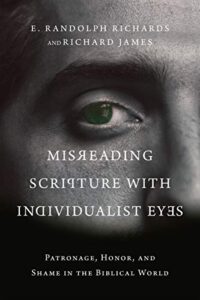
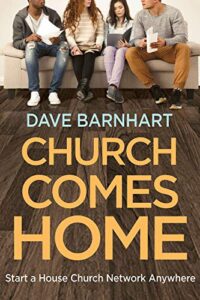
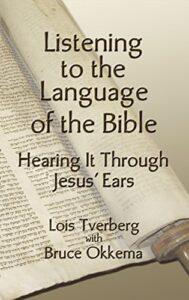
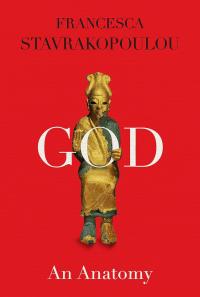

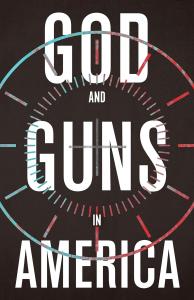
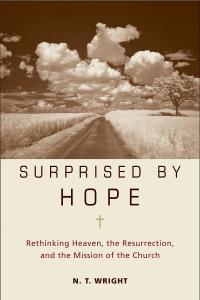
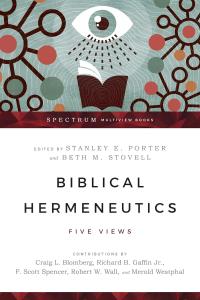
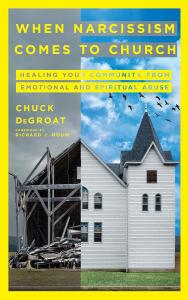
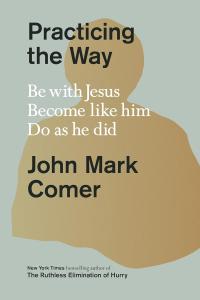
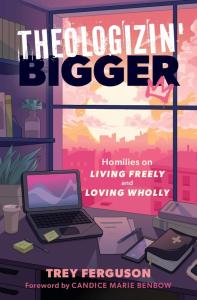
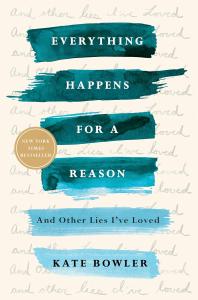
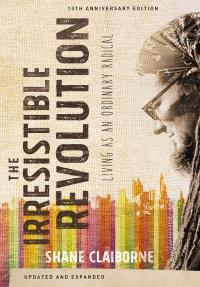
Reviews
“Holy Envy: Finding God in the Faith of Others” by Barbara Brown Taylor


Another highly-recommended book.
This may be scary or off-putting for some people, but here’s the thing that this book (and her other book “Leaving Church”) taught me: other world religions are not as fundamentally different as I had been taught, and there’s a lot to learn from them, and there’s a lot of room at the global table for cooperation instead of real or spiritual warfare between religions.
For a long time, I’d been curious about statements like “different religions all worship the same God” but honestly afraid to learn enough about them to understand if there was real truth to that statement. As an evangelical Christian, I was taught that Jesus was the only way to the Father, and the only name under heaven by which man shall be saved, and of course I believed that, and therefore understood that no other religion could bring salvation. And so I steadfastly avoided learning anything about those other religions because they must be anti-Christ and opposed to the one true God.
I now think that was a foolish and fearful position to take. Taylor, in this book, shows how learning about those other religions did not strip her away from the God of the Bible, but allowed her to breathe easier around those other religions and people who worship differently than Christians. She found things to value in them, while still holding onto Jesus. And I think that’s a deeply valuable thing to learn, especially in our increasingly pluralistic America, where we need to find ways to live with people of different faiths.
(Reviewed August 2023)
Amazon description: The renowned and beloved New York Times bestselling author of An Altar in the World and Learning to Walk in the Dark recounts her moving discoveries of finding the sacred in unexpected places while teaching the world’s religions to undergraduates in rural Georgia, revealing how God delights in confounding our expectations.
Barbara Brown Taylor continues her spiritual journey begun in Leaving Church of finding out what the world looks like after taking off her clergy collar. In Holy Envy, she contemplates the myriad ways other people and traditions encounter the Transcendent, both by digging deeper into those traditions herself and by seeing them through her students’ eyes as she sets off with them on field trips to monasteries, temples, and mosques.
Troubled and inspired by what she learns, Taylor returns to her own tradition for guidance, finding new meaning in old teachings that have too often been used to exclude religious strangers instead of embracing the divine challenges they present. Re-imagining some central stories from the religion she knows best, she takes heart in how often God chooses outsiders to teach insiders how out-of-bounds God really is.
Throughout Holy Envy, Taylor weaves together stories from the classroom with reflections on how her own spiritual journey has been complicated and renewed by connecting with people of other traditions—even those whose truths are quite different from hers. The one constant in her odyssey is the sense that God is the one calling her to disown her version of God – a change that ultimately enriches her faith in other human beings and in God.
“The Evolution of God” by Robert Wright


The title of this book, and how the author addresses his topic, are clearly designed to be provocative.
Very much like “God: An Anatomy,” the author of this book insisted on talking about God, rather than how ancient societies understood God, even though he’s clearly doing the latter. So the flow is “and then God evolved again” instead of “and then man’s understanding of God evolved again.” He uses language similar to saying “And then God evolved again, because God realized that this or that thing wasn’t going according to God’s plan.”
Unfortunately, this tactic strips off any way for the reader to simply learn about the history of mankind’s concept of deity, by attempting to force the reader to think of God as changing to fit the moment – rather than allowing that man’s concept of the supernatural is changing as societies themselves change.
I’m certain that Wright doesn’t actually believe that it’s not man that’s changing, but instead that God is changing, because he admits this many times. But then he immediately goes back to talking about God’s changes.
This is perhaps not surprising, since the author is definitely not Christian, although he denies being an atheist.
As with “God: An Anatomy,” I don’t have any problem learning about Christian things from a non-Christian. As a non-believer, Wright is unconstrained by any theology or doctrine or dogma, and is able to see things that get masked for a Christian because it conflicts in some way with our own beliefs. For this reason, I find great value in learning about my own faith and its history from an agnostic or atheist or member of another religion. But Wright’s presentation illustrates the challenge that comes from such study: we have to see and accept the inevitable biases or activities of the writer amid the data that’s being presented.
(Reviewed September 2023)
Amazon description: In this sweeping narrative that takes us from the Stone Age to the Information Age, Robert Wright unveils an astonishing discovery: there is a hidden pattern that the great monotheistic faiths have followed as they have evolved. Through the prisms of archaeology, theology, and evolutionary psychology, Wright’s findings overturn basic assumptions about Judaism, Christianity, and Islam, and are sure to cause controversy. He explains why spirituality has a role today, and why science, contrary to conventional wisdom, affirms the validity of the religious quest. And this previously unrecognized evolutionary logic points not toward continued religious extremism, but future harmony.
Nearly a decade in the making, The Evolution of God is a breathtaking re-examination of the past, and a visionary look forward.


It’s taken a couple years, and author Pete Enns’ podcasts and other books have certainly already played into my current understanding, but this book probably best captures my current sense of spirituality and connection with the Christian God. Other writers like Richard Rohr push my boundaries a bit too far, arguing for a more ethereal, almost post-Biblical connection with an all-encompassing God concept that sometimes seems to abandon the very concrete ideas in the Bible. But this book stays firmly grounded in the Bible – but gives me a lot of latitude to deal with the sense of contradictions that always troubled me (as a deeply logical, scientifically-minded Christian) but grew increasingly more strident in my mind as I started actually reading the Bible without tightly-attached evangelical lenses. So I think I can recommend this book to anyone who asks me why, if I don’t believe in an inerrant rule manual, I still claim to be a Christian.
(Reviewed June 2023)
Amazon description: Controversial evangelical Bible scholar, popular blogger and podcast host of The Bible for Normal People, and author of The Bible Tells Me So and The Sin of Certainty explains that the Bible is not an instruction manual or rule book but a powerful learning tool that nurtures our spiritual growth by refusing to provide us with easy answers but instead forces us to acquire wisdom.
For many Christians, the Bible is a how-to manual filled with literal truths about belief that must be strictly followed. But the Bible is not static, Peter Enns argues. It does not hold easy answers to the perplexing questions and issues that confront us in our daily lives. Rather, the Bible is a dynamic instrument for study that not only offers an abundance of insights but provokes us to find our own answers to spiritual questions, cultivating God’s wisdom within us.
“The Bible becomes a confusing mess when we expect it to function as a rulebook for faith. But when we allow the Bible to determine our expectations, we see that Wisdom, not answers, is the Bible’s true subject matter,” writes Enns. This distinction, he points out, is important because when we come to the Bible expecting it to be a textbook intended by God to give us unwavering certainty about our faith, we are actually creating problems for ourselves. The Bible, in other words, really isn’t the problem; having the wrong expectation is what interferes with our reading.
Rather than considering the Bible as an ancient book weighed down with problems, flaws, and contradictions that must be defended by modern readers, Enns offers a vision of the holy scriptures as an inspired and empowering resource to help us better understand how to live as a person of faith today.
How the Bible Actually Works makes clear that there is no one right way to read the Bible. Moving us beyond the damaging idea that “being right” is the most important measure of faith, Enns’s freeing approach to Bible study helps us to instead focus on pursuing enlightenment and building our relationship with God—which is exactly what the Bible was designed to do.
“Missional Theology: An Introduction” by John R. Franke


I read this book mainly because I’d had it recommended to me. I’m sorry to say that a few months later, I don’t remember much of it and therefore I am sure I wouldn’t be recommending it, because it doesn’t stand out in my mind. It wasn’t a bad book – it did have some interesting points about how the church can be more missional-focused. It was a good introduction, as it claims to be. But it didn’t impact my current drive to understand theology enough to stick for me.
(Reviewed April 2023)
Amazon description: The notion of missional church and theology has become ubiquitous in the current ecclesial and theological landscape. But what is it all about?
In this clear and accessible introduction to missional theology, noted theologian John Franke connects missional Christianity with the life and practice of the local church. He helps readers reenvision theology, showing that it flows from an understanding of the missional character and purposes of God. Franke also explores the implications of missional theology, such as plurality and multiplicity.
“First Nations Version: An Indigenous Translation of the New Testament” by Terry M. Wildman


Even though in some sense this is "just" a Bible, I couldn’t resist adding it to this page. I heard about this on a podcast, and read a sample, and I immediately went to Amazon and bought it. It’s a completely fresh way of looking at the same scriptures, because it forces me outside my own cultural mindset and lets me see it anew. You won’t regret getting this, and you’re helping Native American tribes have better access to the Holy Bible in the process.
(Reviewed December 2022)
Amazon description: Many First Nations tribes communicate with the cultural and linguistic thought patterns found in their original tongues. The First Nations Version (FNV) recounts the Creator’s Story—the Christian Scriptures—following the tradition of Native storytellers’ oral cultures. This way of speaking, with its simple yet profound beauty and rich cultural idioms, still resonates in the hearts of First Nations people. The FNV is a dynamic equivalence translation that captures the simplicity, clarity, and beauty of Native storytellers in English, while remaining faithful to the original language of the New Testament. Whether you are Native or not, you will experience the Scriptures in a fresh and new way.
“A Portrait of Jesus” by Father Joseph F. Girzone


This was a fascinating but easy book to read. Father Girzone wanders across the Gospels telling stories about Jesus and His life and ministry – and in many cases, a bit of dramatic interpretation of how Jesus might have been thinking, giving His social and historical context. It really does personalize Jesus in a way that provides a wonderful insight into the heart and character of the God/Man who walked among us for such a short time, yet had such a huge impact on history.
(Reviewed July 2022)
Amazon description: There are countless paths to follow when seeking spiritual guidance, but thousands of years of religion and theology cannot replace the premier example that Jesus himself set. In A Portrait of Jesus, bestselling writer Joseph Girzone recaptures the truth of Jesus that is presented in the Gospels and gives a compelling vision of the person Jesus’ contemporaries must have known. In his most powerful work yet, Girzone seeks to personify Christ in the minds of readers by asking some simple questions: "What did people see in Jesus as he walked down the street? How did he approach others and what would these people take away from meeting him? What do his actions tell us about how we can live our lives today?" It is Girzone’s empowering and loving understanding of the heart of Christianity that will make A Portrait of Jesus a groundbreaking classic in the tradition of his bestselling books, Joshua and Never Alone.
“Centered-Set Church: Discipleship and Community Without Judgmentalism” by Mark D. Baker


This was a stunningly useful book to me. Highly recommended.
I don’t think many Christians see how their church (or their denomination at a larger scale) tends to either create or tear down boundaries, to be either exclusive or inclusive, to find ways to expand the Kingdom or defend its existing boundaries. This book does a wonderful job of showing how the default for many churches tends to build fences and segregate people, rather than inviting more people into the Kingdom. I have quite a few people I think would benefit from reading this book – but its implications are scary to many Christians, who feel like doctrinal and liturgical purity are essential to the health of the church, and therefore any fence-tearing-down activity is to be avoided at all costs. So I suppose my response is to simply show something different, something better, as Baker does. I especially appreciate the flow of the book, how he goes from theory to practical application, leaving the reader with a sense of what steps might be taken to implement some of these ideas while addressing the legitimate concerns from conservative Christians.
(Reviewed September 2023)
Amazon description: Christians can be adept at drawing lines, determining what it means to be “a good Christian” and judging those who stray out of bounds. Other times they erase all the lines in favor of a vague and inoffensive faith. Both impulses can come from positive intentions, but either can lead to stunted spiritual life and harmful relationships. Is there another option?
The late missionary anthropologist Paul Hiebert famously drew on mathematical theory to deploy the concepts of “bounded,” “fuzzy,” and “centered” sets to shed light on the nature of Christian community. Now, with Centered-Set Church, Mark D. Baker provides a unique manual for understanding and applying Hiebert’s vision. Drawing on his extensive experience in church, mission, parachurch, and higher education settings, along with interviews and stories gleaned from scores of firsthand interviews, Baker delivers practical guidance for any group that seeks to be truly centered on Jesus.
Baker shows how Scripture presents an alternative to either obsessing over boundaries or simply erasing them. Centered churches are able to affirm their beliefs and live out their values without such bitter fruit as gracelessness, shame, and self-righteousness on the one hand, or aimless “whateverism” on the other. While addressing possible concerns and barriers to the centered approach, Baker invites leaders to imagine centered alternatives in such practical areas of ministry as discipleship, church membership, leadership requirements, and evangelism. Centered-Set Church charts new paths to grow in authentic freedom and dynamic movement toward the true center: Jesus himself.
“This Is the Word of the Lord: How the Bible Became Text and Why It Matters” by Dr. Bill Thomason


This was a very well-written and approachable book about the history of the Bible – not the history IN the Bible, but the history OF the Bible. The author is a retired professor of philosophy and religion. From the perspective of an evangelical who was taught for decades to not question the Bible or its history, it was a hard set of concepts to absorb, but a lot of what he presents is clearly factual, although some of it is interpretive – although no more so than the literalist/inerrant interpretations. I plan to read several more books about Bible research, based on this book.
(Reviewed August 2022)
Amazon description: This book is an overview of the evolution of the contents of the Bible from its earliest oral traditions. Why is it important to know this history? Because the evolution of this text and the way historical circumstances shaped its content and transmission affect how we understand the Bible today. When armed with such historical knowledge, believers can respond to those who insist the Bible is inerrant – and to those who insist the Bible is irrelevant.
“On Earth As It Is in Heaven” by Sam Soleyn


As a long-time follower of Sam Soleyn, this book was no surprise to me, but I still found it to be extremely useful and a very thorough consolidation of his positions on the Kingdom of God and how the Lord is revealing Himself to humanity and His church in this day and age. It’s a voice I haven’t heard so clearly anywhere else in the church, but one which I think is prophetically critical to understanding our place in the Kingdom and God’s goals for His people.
(Reviewed April 2022)
Amazon description: The Body of Christ on the earth connects creation to God and to heaven. Looking into what it means to be sons of God will lead us to inquire about God’s very nature and character. It was God’s intention to establish creation in a way that His character and nature, the aspects of His being, could be seen. This was supported by the seven attributes, or Spirits of God. (cf. Isaiah 11:1-2) The task of understanding God as spirit, and by extension, human beings as spiritual beings, requires the discussion of the characteristics of God’s person by which He reveals Himself and His nature. In this sevenfold display, God shows the distinctiveness of His person and makes Himself knowable and available. Our own transformation into His image and likeness is to awaken our spirit that lives and functions in these characteristics. His essential nature is love and it was His intention to impart fully all the various aspects of love into one visible being: a corporate Man comprised of many peoples of the earth and across the entire spectrum of humanity. He calls the people to Himself and arranges them according to the divine order known as the Kingdom of Heaven. He intends to put Himself, His glory, on display through all those in the earth who are governed by His Spirit and rule themselves by the dictates of heaven, as displayed by Jesus Himself when He lived on the earth. The corporate Man, though comprised of many members, is capable of presenting the intricacies of the divine nature of God in one observable, functional
“Seven Things I Wish Christians Knew about the Bible” by Michael F. Bird


This is a very readable walk through some nearly-but-not-quite-obvious things about the Bible, which if we knew and consistently remembered, would enable us to represent Jesus to the world more richly, more fully, and more accurately.
(Reviewed March 2022)
Amazon description: Seven Things I Wish Christians Knew about the Bible is a short and readable introduction to the Bible—its origins, interpretation, truthfulness, and authority. Bible scholar, prolific author, and Anglican minister Michael Bird helps Christians understand seven important "things" about this unique book:
Seven Things presents a clear and understandable evangelical account of the Bible’s inspiration, canonization, significance, and relevance in a way that is irenic and compelling. It is a must read for any serious Bible reader who desires an informed and mature view of the Bible that will enrich their faith.
“Reading the Bible with Rabbi Jesus: How a Jewish Perspective Can Transform Your Understanding” by Lois Tverberg


Along with "Misreading Scripture," I found this book to be a good reminder that how we see the Bible is sharply different from how the original audience of the Bible would have seen it. A good quote I’ve seen recently is this: God wrote the Bible for us, but not to us. If we’re going to understand it properly, we need to understand how those to whom the various books were written would understand it, so that we can transfer the proper lessons to our modern context, and not make cross-cultural mistakes in the process.
(Reviewed April 2022)
Amazon description: What would it be like for modern readers to sit down beside Jesus as he explained the Bible to them? What life-changing insights might emerge from such a transformative encounter? Lois Tverberg knows the treasures that await readers willing to learn how to read the Bible through Jewish eyes. By helping them understand the Bible as Jesus and his first-century listeners would have, she bridges the gaps of time and culture in order to open the Bible to readers today. Combining careful research with engaging prose, Tverberg leads us on a journey back in time to shed light on how this Middle Eastern people approached life, God, and each other. She explains age-old imagery that we often misinterpret, allowing us to approach God and the stories and teachings of Scripture with new eyes. By helping readers grasp the perspective of its original audience, she equips them to read the Bible in ways that will enrich their lives and deepen their understanding.
“My Father! My Father!” by Sam Soleyn


This book sets forth Dr. Soleyn’s understanding of a proper scriptural model for the government of the Kingdom of God, which is based on the relationship between spiritual fathers and sons – but not in a gendered sense. It’s one of the first understandings of the Bible’s overall teachings that I have found to present a hopeful and encouraging and uplifting view for every Christian, to recognize our amazing part in the movement of God’s people throughout all of human history. Unlike many similar-sounding – but quite different – concepts of patriarchal organizational systems for the church, this one is squarely focused on the idea that the purpose of "rule" is for the benefit of those being ruled, not for the benefit of the ruler. It gives a Godly vision of how the whole body builds itself up, with each part working to fulfill its function (Ephesians 4:16).
(Reviewed December 2011)
Amazon description: In the Kingdom of God, each person’s destiny is the playing out of that person’s unique identity as a son of God, regardless of gender, race, or background. To embrace one’s identity as a son, one must change his prevailing culture. In this season, God is building His House in the earth, with the relationship of fathers and sons as its foundation. Effecting cultural changes requires a trans-generational effort, in which a change in the culture is but one of the first steps of a long journey to reestablish, fully, the House of God. This journey is meant to reposition man in the relationship with God as Father, as God intended from the beginning. The purpose of repositioning humankind as sons and heirs to God is to establish the family of God on the earth and to display the love of God, through his sons, to all of creation. Whereas the destiny of each son of God is vitally important, the entire purpose of God can only, ultimately, be accomplished through the corporate form—the House of God.
“Why I Left Church to Find Jesus: A Personal Odyssey” by Julie McVey


This was a very lightweight and fairly quick read. You might find value in it if you have deconstructed to the point of stepping away from the church and from God entirely.
(Reviewed March 2022)
Amazon description: Have you ever felt like you were outgrowing your childhood religion or the religion in which you have spent many years investing your time, resources, and most importantly, your faith? Have you ever experienced being shunned for religious reasons? It’s hard enough to spiritually evolve and accept that many doctrines of your once beloved religion no longer resonate with you, but to be shunned by family or close friends because of it is one of the most painful realities one can endure as it forces one to go through the loss of a person still alive. The grief is real. In Why I Left Church to Find Jesus: A Personal Odyssey, you will take a journey of carefree freedom in innocent faith to bondage in an authoritarian religion to freedom once again but not without the high cost that comes with spiritual transformation. Christians, ex-Christians, and religious outcasts will relate to the heartache, confusion, and betrayal of not only a religion lost in such a spiritual evolution but, more painfully, of friendships lost.
“The City Gate: The Prosperity & Protection of Cities & Churches” by John Kingsley Alley


This book actually first got me thinking about how institutional church sometimes works against its own best interests, and more importantly, sometimes works against the Kingdom. Starting with an amazing, well-documented miraculous story from Australia, it walks through the author’s process of personally encountering the Lord in new ways and new revelations about the Lord’s goal for His church.
(Reviewed June 2016)
Amazon description: This is a unique book. A combination of profound truths, presented in narrative and biblical theology, along with perceptive insight from a fathering heart, combine to bring an authoritative, apostolic message to the Body of Christ. This cut-through teaching, coming from a seasoned, mature, apostolic voice, is timely. In making clear the Word of our Lord Jesus and the words of His apostles, it calls for a profound change in the visible structure of the Church, and in the way we live out the expressed values of Christianity. To embrace the biblical imperative of establishing City Elderships would fly in the face of much vested interest in the Church. But vested interest does not stand in the judgement day. We must live, rather, by the fear of the Lord.
“Misreading Scripture with Individualist Eyes: Patronage, Honor, and Shame in the Biblical World” by E. Randolph Richards and Richard James


This book was the topic of my third book study. This book is simply amazing. It is a lot more fun and interesting to read than any of the others listed here; it’s not emotionally challenging at all. Rather, it shares a different way of seeing the world – not more right than Westerners, just very different. But critically, it shows with dozens of specific examples how we Western Christians are missing some very important context in many parts of scripture, that really unlock a lot of additional meaning to the Bible.
(Reviewed September 2021)
Amazon description: The Bible was written within collectivist cultures. When Westerners, immersed in individualism, read the Bible, it’s easy to misinterpret important elements—or miss them altogether. In any culture, the most important things usually go without being said. So to read Scripture well we benefit when we uncover the unspoken social structures and values of its world. We need to recalibrate our vision. Combining the expertise of a biblical scholar and a missionary practitioner, Misreading Scripture with Individualist Eyes is an essential guidebook to the cultural background of the Bible and how it should inform our reading. E. Randolph Richards and Richard James explore deep social structures of the ancient Mediterranean—kinship, patronage, and brokerage—along with their key social tools—honor, shame, and boundaries—that the biblical authors lived in and lie below the surface of each text. From Abraham, Sarah, and Hagar to Peter’s instructions to elders, the authors strip away individualist assumptions and bring the world of the biblical writers to life. Expanding on the popular Misreading Scripture with Western Eyes, this book makes clear how understanding collectivism will help us better understand the Bible, which in turn will help us live more faithfully in an increasingly globalized world.
“Church Comes Home: Start a House Church Network Anywhere” by David L. Barnhart Jr.


This was a powerful book, casting a vision for a different type of church model. Not everyone can do it, but Barnhart makes a compelling case for the need for and value of this different model.
(Reviewed November 2021)
Amazon description: People have lost faith in all collective institutions: government, corporations, the media, and the church. We are in the midst of a spiritual disaster, a flood of biblical proportions, and house churches provide lifeboats for people who are seeking a more authentic, life-giving form of Christian community. Many people remember that the early church started in homes, but they don’t understand that house churches are still a legitimate and viable model today. House churches can create the intimacy so many people are hungry for. They can nurture life-changing discipleship for individuals and create justice-centered communities. Networked house churches can become truly diverse, multi-ethnic communities that spread the Gospel by emphasizing practices over programs. These communities de-center the preacher, opting instead for grassroots organizing, but they are not leaderless — they are leader-full. This book provides an alternative model for denominations and established churches to consider. It will help pastors reconnect with the traditions of community organizing, itinerant preaching, and discipleship training that sparked Methodism and other church movements in the United States. Church Comes Home offers alternative ways to look at some of the problems facing our church and our culture.
“Listening to the Language of the Bible: Hearing It Through Jesus’ Ears” by Lois Tverberg and Bruce Okkema


Not what I expected, but interesting nonetheless. This is more like a daily devotional than anything else, touching on a number of Biblical terms and phrases that have more rich context than many Western readers would expect.
(Reviewed December 2021)
Amazon description: Listening to the Language of the Bible is a guide for discovering the richness of the Scriptures in their Hebraic setting. The book contains more than 60 brief, illustrated devotional articles that unpack the meaning of biblical words and phrases for life today. By examining the Hebrew and Jewish cultural context of some of the Bible’s seemingly odd phrases, it shares insights that clarify reading and deepen Bible study. Listening looks at many topics from the perspective of the ancient writers, including prayer, family and the promised Messiah. It also looks at the words of Jesus in light of first-century Jewish culture. The book can be read by itself for a brief overview, or with the Companion Bible Study as a guide to explore the Scriptures from a Hebraic perspective.
“God: An Anatomy” by Francesca Stavrakopoulou


There’s a ton of data to absorb here, about how ancient cultures (not just the Hebrew ones) conceptualized and wrote about God. I learned a lot about the ancient cultures and their understandings of deity, and how that seemed to have shaped Hebrew and then Christian writings and concepts of Adonai or El and thus what we moderns simply call God or The Lord.
I didn’t like the way that the author insisted on frequently referring to what deities were, instead of what I think is vastly more appropriate: how the ancient cultures used language to describe them. In other words, she spends chapter after chapter describing various seemingly physical parts of the deity’s anatomy, using quotes from ancient sources – but not seeming to acknowledge the fairly obvious fact that we humans use aspects of our own body structure to explain less-physical things.
There is some lip service paid to this idea – that these literary works are anthropomorphic descriptions – but then she reverts to speaking about those works as if the authors truly believed they were being literal, not metaphorical.
For example, we often talk about God’s hands as indicating some aspect of God’s creative touch – but I have never met anyone who thinks of a physical God with a physical pair of hands actually doing a tangible manipulation of creation.
I really couldn’t tell if the author was just being deliberately provocative. It’s pretty clear to me that she doesn’t come from a Christian perspective. I don’t really care whether she does or not, because non-Christians often see things that Christians miss because of their worldview, and we can learn a lot from them. But in this case it’s pretty clear that there’s a significant amount of poking and prodding against Christians going on here.
At some point I simply started scanning the content, rather than reading deeply, because I kind of felt that I understood her point and she was simply trying hard to hammer it home over and over again.
I’m not sure I would recommend this book to anyone, unless you just want a good survey of descriptions of various anatomical references in ancient literature.
(Reviewed September 2023)
Amazon description: An astonishing and revelatory history that re-presents God as he was originally envisioned by ancient worshippers – with a distinctly male body, and with superhuman powers, earthly passions, and a penchant for the fantastic and monstrous.
“[A] rollicking journey through every aspect of Yahweh’s body, from top to bottom (yes, that too) and from inside out … Ms. Stavrakopoulou has almost too much fun.” – The Economist
The scholarship of theology and religion teaches us that the God of the Bible was without a body, only revealing himself in the Old Testament in words mysteriously uttered through his prophets, and in the New Testament in the body of Christ. The portrayal of God as corporeal and masculine is seen as merely metaphorical, figurative, or poetic. But, in this revelatory study, Francesca Stavrakopoulou presents a vividly corporeal image of God: a human-shaped deity who walks and talks and weeps and laughs, who eats, sleeps, feels, and breathes, and who is undeniably male.
Here is a portrait – arrived at through the author’s close examination of and research into the Bible – of a god in ancient myths and rituals who was a product of a particular society, at a particular time, made in the image of the people who lived then, shaped by their own circumstances and experience of the world. From head to toe – and every part of the body in between – this is a god of stunning surprise and complexity, one we have never encountered before.
“Phantastes: A Faerie Romance for Men and Women” by George MacDonald


This is my second George MacDonald book. I found the first – “Lilith” – to be more compelling, but this was worth reading for its vision of how one moves from self-indulgence and self-interest to having their eyes opened and choosing finally to do good at the risk of ultimate self-sacrifice.
(Reviewed February 2024)
Amazon description: One of the first great works of nineteenth-century fantasy fiction, Phantastes inspired many of the great Christian and fantasy authors of the twentieth century. A fairy tale for adults, it is the captivating story of a wealthy young man who takes an unplanned journey into a fantastic nether world. Led by an enchanting sprite (discovered inside an old desk once owned by his deceased father), he meets a diverse cast of characters, among them a fairy queen, as well as sinister figures who threaten his spiritual well-being.
Outstanding for its imaginative characters, vivid action, and subtle yet powerful moral messages, this book, first published 100 years ago, earned MacDonald recognition as “The Grandfather of Modern Fantasy,” and a tribute from W. H. Auden as “one of the most remarkable writers of the 19th century.” Of this work, C. S. Lewis wrote, “It will baptize your imagination.”
“God and Guns in America” by Michael W. Austin


I grew up in gun-culture conservative Americana, and only recently have begun to rethink my own relationship with guns, as I’ve watched with great dismay the rise in mass shootings and general gun violence, but with even more dismay the conservative Christian tendency to worship gun rights almost beyond the human right to life and safety. The author does a good job breaking down some common assumptions about gun rights and common conservative arugments about life and liberty in relationship to our faith obligations. I have some disagreements with some of his conclusions, and sometimes the author tends to make absolutist statements about which policy is the right one, but generally that was a minor problem and he does a very good job of calling his fellow Christians to think more clearly and to step back from the pro-gun position far enough to see it from a Kingdom perspective.
(Reviewed May 2024)
Amazon description: What if Christians did more than offer thoughts and prayers in response to gun violence? Ethicist Michael Austin argues—from a biblical but nonpacifist perspective – that we can impose firearms restrictions to make our society safer and less fearful while still respecting the rights of gun owners. God and Guns in America is a thoughtful, measured, and articulate treatment of a polarizing topic that is too often treated with more heat than light.
“Surprised by Hope: Rethinking Heaven, the Resurrection, and the Mission of the Church” by N. T. Wright


I’d heard a lot of people mention N. T. Wright and his writings, and I decided it was high time to read at least one of his books. I chose this one because it fit in with my desire to understand more well-regarded theologians’ viewpoints on the topic of salvation and universal reconciliation.
I’m glad that I read this book, even though I was a little surprised by his take on the topic. Despite his persuasive writing, I have some disagreement with some of his theology, but more in the fine details than his overall conclusions. He definitely provided me with some useful thinking and language that I’ve been able to incorporate into my own personal sense of eschatology and soteriology.
(Reviewed July 2024)
Amazon description: In Surprised by Hope: Rethinking Heaven, the Resurrection, and the Mission of the Church, top-selling author and Anglican bishop, N.T. Wright tackles the biblical question of what happens after we die and shows how most Christians get it wrong. We do not “go to” heaven; we are resurrected and heaven comes down to earth–a difference that makes all of the difference to how we live on earth. Following N.T. Wright’s resonant exploration of a life of faith in Simply Christian, the award-winning author whom Newsweek calls “the world’s leading New Testament scholar” takes on one of life’s most controversial topics, a matter of life, death, spirituality, and survival for everyone living in the world today.
“Biblical Hermeneutics: Five Views” by Stanley E. Porter


I really do appreciate the books in this series, and how they’re set up to allow respectful dialogue from different starting points of view. I found this to be a very good overview of how various theologians approach Bible interpretation. I already had my own ideas, but this book opened my eyes to other ways of thinking. I came away with the conclusion that no one of the five approaches is fully sufficient, and I got the impression, actually, that the five contributors all agree: they have a preference, but they see the value in the other approaches, and none of them really is a purist in how they personally approach Bible interpretation. So they each understand that different approaches are useful for different things. All told, this is worth reading to help structure our approach to Scripture.
(Reviewed September 2024)
Amazon description: In this Spectrum Multiview volume five experts in biblical hermeneutics gather to state and defend their approach to the discipline. Contributors include:
Craig Blomberg with the historical-critical/grammatical approach
Richard Gaffin with the redemptive-historical approach
Scott Spencer with the literary/postmodern approach
Robert Wall with the canonical approach
Merold Westphal with the philosophical/theological approach
Spectrum Multiview Books offer a range of viewpoints on contested topics within Christianity, giving contributors the opportunity to present their position and also respond to others in this dynamic publishing format.
“When Narcissism Comes to Church: Healing Your Community From Emotional and Spiritual Abuse ” by Chuck DeGroat


This was a really useful book. It made me think really hard about my own experiences over the last 30 or more years, and especially the last year in evangelical church spaces underneath a pastor who I now see as significantly narcisisstic. I tend to give people the benefit of the doubt, but this book clearly identified a number of patterns of misbehavior that can be deeply toxic, and I realize that being too forgiving can allow the patterns of harm to continue to hurt others, and so it was useful to give me a framework of understanding to put up appropriate boundaries around such behavior in the future.
The discussion of the relationship between Enneagram types and narcissism types was helpful, although a friend who is getting certified to do Enneagram typing tells me that some of the conclusions are rather simplistic. This person also has studied Internal Family Systems” (IFS) and thought that his ideas about IFS and narcissism were quite appropos.
(Reviewed September 2024)
Amazon description: Why Does Narcissism Seem to Thrive in Our Churches?
We’ve seen the news stories. Maybe we ourselves have been hurt by a narcissistic church leader. But what is narcissism, really? And how does it infiltrate the church?
Chuck DeGroat has been counseling pastors with narcissistic personality disorder, as well as those wounded by narcissistic leaders and systems, for over twenty years. He knows firsthand the devastation narcissism leaves in its wake and how insidious and painful it is. In “When Narcissism Comes to Church”, DeGroat takes a close look at narcissism, not only in ministry leaders but also in church systems; offers compassion and hope for those affected by its destructive power and; imparts wise counsel for churches looking to heal from its systemic effects.
DeGroat also offers hope for narcissists themselves – not by any shortcut, but by the long, slow road of genuine recovery through repentance and trust in the gospel of Jesus.
“Practicing the Way: Be with Jesus. Become like him. Do as he did. ” by John Mark Comer


This was a good book, and I look forward to doing a book study on it with a local church. For the first three or so chapters, I continually thought “I could have written this.” I’ve been coming to a lot of the same conclusions independently as I’ve been de/re-constructing since about 2021, and it was good to hear someone else writing the same things I’ve written on my blog for a few years now.
Moving beyond those first chapters, I appreciate how Comer takes us to school about following Jesus, about apprenticing to Him, and how the word “disciple” is so badly misunderstood in today’s world, and how we can intelligently and intentionally posture ourselves to more effectively become like Jesus and do the works that He did among the people around us.
(Reviewed September 2024)
Amazon description: We are constantly being formed by the world around us. To be formed by Jesus will require us to become his apprentice.
To live by what the first Christian disciples called a Rule of Life – a set of practices and relational rhythms that slow us down and open up space in our daily lives for God to do what only God can do – transforms the deepest parts of us to become like him.
This introduction to spiritual formation is full of John Mark Comer’s trademark mix of theological substance and cultural insight as well as practical wisdom on developing your own Rule of Life.
These ancient practices have much to offer us. By learning to rearrange our days, we can follow the Way of Jesus. We can be with him. Become like him. And do as he did.
“Theologizin’ Bigger: Homilies on Living Freely and Loving Wholly” by Trey Ferguson


Irreverent, funny, yet challenging.
Pastor Trey does a really good job of drawing the reader in to a different world than they may inhabit in their own lives, and see the Christian walk from a new vantage point.
I also deeply appreciated how he decentered my own assumptions about church and relationship with God, and brought me into a distinctly different viewpoint and set of experiences that did a good job of expanding my awareness of different ways of thinking about God.
I was starting from a substantially de/re-constructed vantage point, so a number of Pastor Trey’s points were not new to me – but for anyone still firmly stuck in evangelicalism, this book might rattle their cage more than a few times – I think in necessary and good ways, but likely disconcerting.
Perhaps my favorite quote: “Jesus is not located in one fixed position. The invitation that Jesus gave His disciples was not merely “come to me,” but “follow me.”
(Reviewed September 2024)
Amazon description: With lo-fi personal truth-telling, Ferguson encourages readers to wrestle with and see the bigger picture around their religious beliefs. Theologizin’ Bigger offers four parts: B.I.B.L.E. (Books Inspired by Life’s Experiences), The White Man’s Religion, A State of Confusion, and a Faith That Shapes Tomorrow. Each part explores different aspects of faith, including the interpretation of scripture, the tension between race and Christianity, the misunderstandings surrounding religious discussions, and the role of faith in our lives.
Ferguson emphasizes that the Bible is not a simple instruction manual and cannot provide answers to every question or dilemma. He encourages you to go beyond memorization of scripture and engage in a sense of curiosity and imagination.
You don’t have to ignore your nagging doubts and honest questions. You don’t have to check any part of yourself at the door. You can find the faith to live freely and love wholly.
“Everything Happens for a Reason: And Other Lies I” by Kate Bowler


I read this book immediately after reading “Blessed” also by Kate Bowler; I wanted to learn more about her life and story after the other book. I was very surprised by this read; it told a compelling and emotional story about her coming to terms with an unexpected challenge to her theology. How often do we spend a lot of time working on studying and debunking a doctrine, and then be confronted with wondering whether it could actually save your life? It will be a long time before I forget this story.
(Reviewed October 2024)
Amazon description: Kate Bowler is a professor at Duke Divinity School with a modest Christian upbringing, but she specializes in the study of the prosperity gospel, a creed that sees fortune as a blessing from God and misfortune as a mark of God’s disapproval. At thirty-five, everything in her life seems to point toward “blessing.” She is thriving in her job, married to her high school sweetheart, and loves life with her newborn son.
Then she is diagnosed with stage IV colon cancer.
The prospect of her own mortality forces Kate to realize that she has been tacitly subscribing to the prosperity gospel, living with the conviction that she can control the shape of her life with “a surge of determination.” Even as this type of Christianity celebrates the American can-do spirit, it implies that if you “can’t do” and succumb to illness or misfortune, you are a failure. Kate is very sick, and no amount of positive thinking will shrink her tumors. What does it mean to die, she wonders, in a society that insists everything happens for a reason? Kate is stripped of this certainty only to discover that without it, life is hard but beautiful in a way it never has been before.
Frank and funny, dark and wise, Kate Bowler pulls the reader deeply into her life in an account she populates affectionately with a colorful, often hilarious retinue of friends, mega-church preachers, relatives, and doctors. Everything Happens for a Reason tells her story, offering up her irreverent, hard-won observations on dying and the ways it has taught her to live.
“The Irresistible Revolution: Living as an Ordinary Radical” by Shane Claiborne


I’ve been following the author for some time on social media, as my politics began to align with his and I could see that he was talking about some things that I needed to be challenged to hear. So I picked one of his books to see what he had to say. And yes, it definitely did challenge me. I suppose that it’s hard to spend time with (even virtually, reading a book) a person who’s deeply committed to an alternate way of living and can back it up with scripture, and not have your spirit respond to their passion for God.
I was particularly taken by Sean’s ideas about homelessness, since I’ve been increasingly motivated myself to do something about that problem in my own community. His multitudes of detailed personal stories are compelling, and reminded me that what I’m feeling is definitely Jesus’ call to heal the sick, feed the hungry, and care for the widows and orphans, and shouldn’t be ignored.
Perhaps the most compelling thing was the call to rethink our normal ideas about church – it’s an area I’ve been interested in for a few years now, as I’ve deconstructed and reconstructed my faith. His vision and the systems he’s set up in the Philadelphia area are really interesting, and I cannot help but think of how such ideas might be implemented here in my small town.
(Reviewed March 2025)
Amazon description: Join Shane Claiborne as he invites you to rediscover the biblical practice of loving your neighbor, using unconventional examples from his own life to stir up questions about the church and the world while challenging you to truly live out your faith.
In this updated and expanded edition of The Irresistible Revolution, bestselling author and activist Shane Claiborne challenges us to remember that the Great Commission sends us into the world not just to make believers but to form disciples who know how to love the way God calls us to.
In The Irresistible Revolution, Shane describes an authentic faith rooted in belief, action, and love, inviting us into a movement of the Spirit that begins inside each of us and extends into a broken world. He asks and answers key questions like:
– How can I sustain my faith and combat burnout?
– Should Christians be involved in politics?
– How does God want me to spend my life?
With new material throughout the book, Shane adds new stories, shares what his community looks like now, and brings you fresh inspiration to live out this message in practical ways. Come join the revolution.
I’ll update this list as my reading continues.
Disclaimer: As an Amazon Associate we earn from qualifying purchases, and we make a tiny bit of money – so far, just $16 – on these Amazon affiliate links. You can help support this blog simply by purchasing anything from Amazon within 24 hours of following one of these links.
